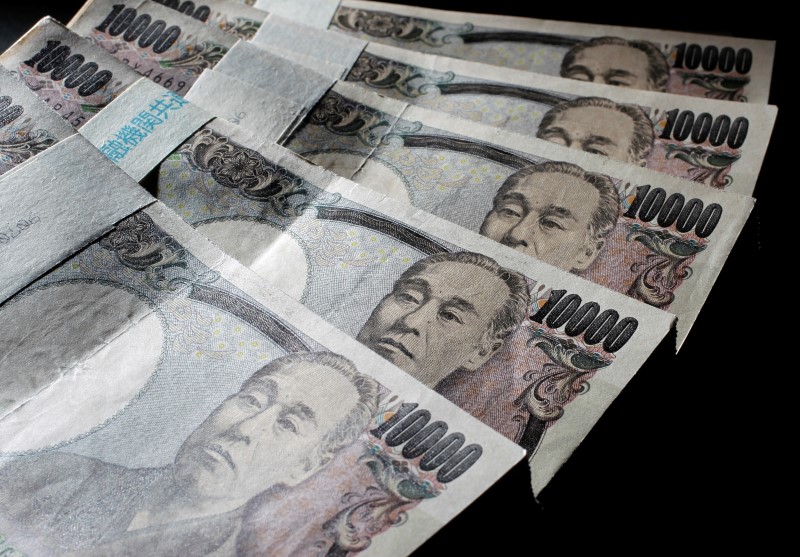(Updates after comments by ECB's Draghi)
* PM Abe says Japan will act if necessary
* ECB's Draghi outlines possible further steps
* Biggest onshore yuan gain since dollar peg dropped in 2005
* But moves likely exaggerated by U.S. holiday
By Patrick Graham
LONDON, Feb 15 (Reuters) - The euro and yen weakened 1 percent against the dollar on Monday, with investors reversing the past week's search for traditional safe locations for capital as officials signalled they could do even more to spur the global economy.
With U.S. markets closed for a domestic holiday, Japanese Prime Minister Shinzo Abe led the way by warning Tokyo would take action against "excessive currency volatility" - read universally as a threat to intervene against the yen.
Chinese central bank chief Zhou Xiaochuan also played down concerns over falls in its currency reserves, helping drive the biggest daily rise in onshore rates for the yuan since China dropped an official peg to the dollar in 2005. euro zone opposite number, Mario Draghi, knocked another half a percent off the euro and yen in afternoon trade, pointing to more steps the bank can take to support credit and get the economy moving again.
"Since Draghi started speaking the dollar has extended its gains against the euro," said Piotr Matys, a strategist with Rabobank in London.
"It is another relatively dovish signal that contributes to further improvement in global sentiment and the euro has tended to gain in recent weeks when appetite for risk improves."
A stock market sell-off since the start of February has driven a wave of capital to seek the traditional safety of Japan, driving the yen 7 percent higher JPY= and prompting speculation Tokyo would intervene. The dollar was up 1 percent at 114.45 yen.
The euro EUR= has been a slightly shakier choice as a haven for investors' money in the past week but both it and the yen were down by a full percentage point against the dollar as Draghi spoke in the European parliament. It was down at $1.1145.
Abe also said he hoped the Group of 20 finance leaders would take appropriate measures to address global economic problems when they meet in Shanghai next week. ID:nT9N15D007
The Australian and New Zealand dollars, both commodities-linked currencies dependent on optimism over global growth, each gained around half a percent against the dollar. AUD= NZD=
Onshore rates for the yuan, whose fall since December has been one of the big elements unsettling markets, gained 1.2 percent from levels seen in its last trading before the Lunar New Year holiday began more than a week ago. CNY=
That broadly reflected a weakening of the dollar against its developed world peers over that period, but not its moves against other emerging Asian currencies. Offshore rates for the yuan rose 0.1 percent. CNH=D3
The mood in Europe remains extremely fragile. Many analysts pointed to grim Japanese growth data and China's January trade performance, which was worse than expected. has shown its mettle with a firmer fix but am I impressed? Not overly," said Tobias Davis, head of corporate treasury sales at Western Union in London.
"It's a well-received relief rally in risk sentiment which is well overdue. But the China data was terrible and Japan's woes continue." (Editing by Ruth Pitchford)
